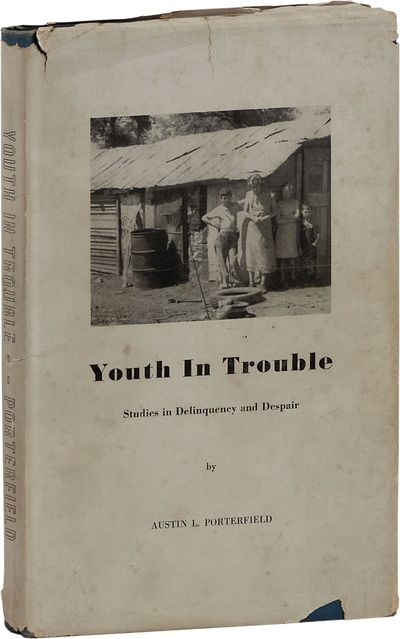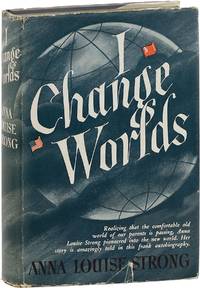first edition
1946 · Fort Worth
by [CRIME & THE UNDERWORLD] [JUVENILE DELINQUENCY] PORTERFIELD, Austin L.
Fort Worth: Leo Potishman Foundation, 1946. First Edition. Presentation, lengthily inscribed: "To Edward Hopper / Assistant Superintendent of a work that is more than mere prevention of disaster in young peoples' lives - it is a program of building creative personalities - with the best wishes always," signed, undated but apparently contemporary with publication. First printing. Octavo. Blue cloth hardcover, titled in gilt; dustjacket; 136pp; included bibliography. Tight, square copy in the original pictorial dustwrapper, unclipped (priced $1.50 on front flap), slightly rubbed, soiled and worn with small losses at margins; Good or better.
Porterfield, a pioneering sociologist at Texas Christian University, seeks to demonstrate that juvenile criminal behavior is nearly always related to parental neglect or abuse, and asserts that it is the responsibility of the community to provide a surrogate: "...the community is responsible for all youth whose parents fail them and for the training and improvement of oppoortunities of parents so that they can escape failure..." (from jacket copy). Includes three detailed case studies and a wealth of statistical data. This copy inscribed to an "Edward Hopper," presumably not the noted painter of this period (at least, we can find no evidence of Hopper's involvement in a program to rehabilitate troubled youth). (Inventory #: 83975)
Porterfield, a pioneering sociologist at Texas Christian University, seeks to demonstrate that juvenile criminal behavior is nearly always related to parental neglect or abuse, and asserts that it is the responsibility of the community to provide a surrogate: "...the community is responsible for all youth whose parents fail them and for the training and improvement of oppoortunities of parents so that they can escape failure..." (from jacket copy). Includes three detailed case studies and a wealth of statistical data. This copy inscribed to an "Edward Hopper," presumably not the noted painter of this period (at least, we can find no evidence of Hopper's involvement in a program to rehabilitate troubled youth). (Inventory #: 83975)



